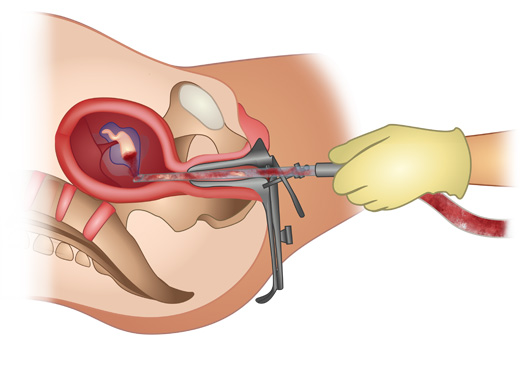There are two main methods for abortion: medical abortion (also called medication or non-surgical abortion) and surgical abortion. The method used depends on several factors, including the gestational age of the pregnancy and the individual’s medical history and personal preference.
- Medical abortion: Medical abortion involves taking medication to end a pregnancy. The medications used are typically a combination of mifepristone and misoprostol, taken in two or more doses over a period of several days. These medications work to end the pregnancy by causing the uterus to contract and expel its contents, similar to a miscarriage. Medical abortion can be performed up to 10 weeks of pregnancy.
- Surgical abortion: There are several types of surgical abortion, including aspiration abortion and dilation and evacuation (D&E) abortion. Aspiration abortion is a commonly performed type of surgical abortion and involves the use of a thin tube or suction device to remove the contents of the uterus. This procedure can be performed up to 16 weeks of pregnancy. D&E abortion is a more invasive procedure that involves dilation of the cervix and removal of the contents of the uterus with surgical instruments. This procedure is typically performed between 13-24 weeks of pregnancy.
Both medical and surgical abortions are safe and effective when performed by trained healthcare providers in a safe and appropriate setting. It is important to discuss your options with your healthcare provider and make an informed decision based on your individual circumstances and preferences.

How are the abortion pills used?
The abortion pill, also known as a medical abortion or medication abortion, is a non-surgical method of ending a pregnancy. The abortion pill involves taking two medications, mifepristone and misoprostol, in two separate doses over a period of several days.
Here's a general outline of how the abortion pill is used:
Step 1: Mifepristone is taken orally at a clinic, hospital, or healthcare provider’s office. Mifepristone works by blocking the hormone progesterone, which is needed for a pregnancy to continue. This medication causes the lining of the uterus to thin and the cervix to soften, preparing the uterus for the second medication, misoprostol.
Step 2: Misoprostol is taken orally or inserted vaginally at home, usually 24 to 48 hours after taking mifepristone. Misoprostol works by causing the uterus to contract and expel its contents, similar to a miscarriage. The cramping and bleeding typically start a few hours after taking misoprostol and may last for several days.
Follow-up: It is important to follow-up with a healthcare provider about 1-2 weeks after taking the abortion pill to confirm that the abortion was successful and to check for any complications.
The abortion pill is safe and effective when used as directed by a healthcare provider. It is important to discuss your options and any concerns you may have with your healthcare provider before deciding whether the abortion pill is right for you.

Can you perform an abortion without mifepristone?
In a medical abortion, mifepristone is typically used in combination with misoprostol to effectively end a pregnancy. However, in some cases, misoprostol alone can be used to induce an abortion, although it may be less effective than using both medications.
Misoprostol alone can be used to induce an abortion up to 9 weeks of pregnancy. The medication is typically taken in a series of doses, either orally or vaginally, over a period of several days. Like the combination of mifepristone and misoprostol, misoprostol alone works by causing the uterus to contract and expel its contents, similar to a miscarriage.
It is important to note that misoprostol alone is not as effective as the combination of mifepristone and misoprostol, and may result in incomplete abortion, which could lead to infection or other complications. Therefore, it is important to follow up with a healthcare provider to confirm that the abortion was successful and to check for any complications.
It is also important to note that the availability and legality of abortion services and medications vary depending on the country and region. If you are seeking abortion services, it is important to research the laws and regulations in your area and seek care from a reputable healthcare provider.
What causes abortion pills to fail?
Abortion pills are a safe and effective way to end a pregnancy when used as directed by a healthcare provider. However, like any medical procedure, there is a small chance of failure. Here are some reasons why abortion pills may fail:
- Incomplete abortion: Sometimes the medication may not work completely, and some pregnancy tissue may remain in the uterus. This can happen in about 1-2% of cases.
- Gestational age: Abortion pills are typically effective up to 10 weeks of pregnancy. If the pregnancy is further along than 10 weeks, the medication may not work as well.
- Medication administration: If the medication is not taken as directed, such as taking the wrong dosage or taking the medication at the wrong time, it may not be as effective.
- Medical conditions: Certain medical conditions or medications may interfere with the effectiveness of the medication, so it is important to disclose any medical conditions or medications to your healthcare provider.
- Counterfeit medications: In some regions, counterfeit medications may be sold as abortion pills, which may not be effective or may even be harmful.
It is important to follow the instructions of your healthcare provider when taking abortion pills and to follow up with them to ensure that the abortion was successful and to check for any complications.
Where can you find mifepristone in Kenya
Mifepristone is a prescription medication that is typically used in combination with misoprostol for medical abortion. The availability and legality of abortion services and medications, including mifepristone, vary depending on the country and region.
In Kenya, abortion is legal in certain circumstances, such as when the life or health of the pregnant person is at risk, and is only performed by licensed healthcare providers. However, mifepristone is not available for medical abortion in Kenya, as it is not currently registered with the Pharmacy and Poisons Board, which is responsible for regulating medications in the country.
If you are seeking abortion services or information in Kenya, it is important to research the laws and regulations in your area and seek care from a reputable healthcare provider. There are organizations such as Women for Women Kenya that provide safe and legal abortion services, as well as information and resources on sexual and reproductive health.
.




